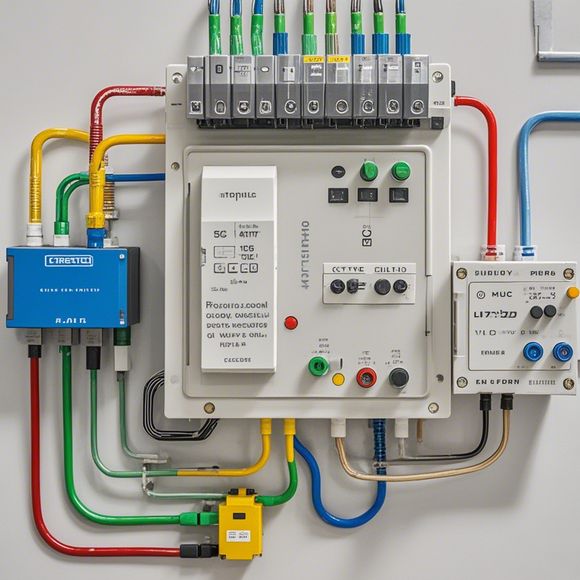PLC Controller Integration for Smart Manufacturing
In today's competitive global market, smart manufacturing has become a crucial factor in enhancing efficiency, reducing costs, and improving product quality. One of the most critical components that contribute to this advancement is the integration of PLC (Programmable Logic Controller) controllers into manufacturing processes. PLC controllers offer an efficient, flexible, and reliable means of controlling industrial equipment. This essay aims to provide an overview of the benefits of integrating PLC controllers into manufacturing processes, including their application in various industries and the key factors to consider when selecting a PLC system.
One of the primary advantages of using PLC controllers in manufacturing is their ability to automate complex production processes. Traditionally, manufacturing operations were reliant on manual labor and time-consuming procedures. However, with the introduction of PLC controllers, these tasks have been significantly streamlined, resulting in faster production cycles. PLC systems can handle multiple tasks simultaneously, allowing for increased productivity and reduced lead times. For example, a PLC-controlled assembly line can process multiple products simultaneously while monitoring and adjusting the production process accordingly, ensuring consistent quality output.
Another significant benefit of using PLC controllers is the ability to integrate them with other manufacturing technologies such as robotic arms and automation systems. By connecting PLC systems to these devices, manufacturers can create highly efficient and precise production lines that can produce customized products with high accuracy and consistency. Additionally, PLC systems can be programmed to perform specific functions, such as monitoring inventory levels or tracking customer order statuses, which can help businesses optimize their supply chain and improve customer satisfaction.
The integration of PLC controllers also enables companies to enhance their flexibility and adaptability. With PLC systems, manufacturers can easily modify production processes according to changing market demands or unexpected events. This adaptability is particularly important during times of economic uncertainty or when new technologies emerge, allowing companies to stay ahead of the competition and remain profitable.

Moreover, PLC controllers offer cost savings by reducing labor costs and minimizing errors. Manual control systems are prone to human error, leading to wasted resources and delays in production. In contrast, PLC controllers eliminate the need for skilled labor and reduce the likelihood of mistakes, resulting in lower operating costs and improved overall efficiency.
However, choosing the right PLC system for your manufacturing operation requires careful consideration of various factors. Firstly, you should evaluate the size and complexity of your production process to determine the appropriate PLC system size and capabilities. Secondly, consider the level of automation required and whether a PLC system can meet your needs effectively. Thirdly, assess the reliability and maintenance requirements of the PLC system, as well as its ease of use and compatibility with other manufacturing technologies. Finally, compare prices and seek advice from industry experts to identify the best option for your business.

In summary, the integration of PLC controllers in manufacturing is a game-changer that offers numerous benefits such as enhanced automation, flexibility, and cost savings. By considering the factors outlined above and seeking expert advice, you can select the perfect PLC system for your business's needs. As we continue to embrace smart manufacturing practices, the importance of PLC controllers will only increase, enabling businesses to achieve greater success and innovation.
Content expansion reading:

Articles related to the knowledge points of this article:
Smart Manufacturing Solutions with PLC Integrated Machinery
PLC Programming for Automation Control in the Manufacturing Industry
How to Use a PLC Controller for Your Business
PLC (Programmable Logic Controller) Control System Basics
Connecting a PLC Controller to Your Computer
PLC Controllers: A Comprehensive Guide to Understanding Their Prices